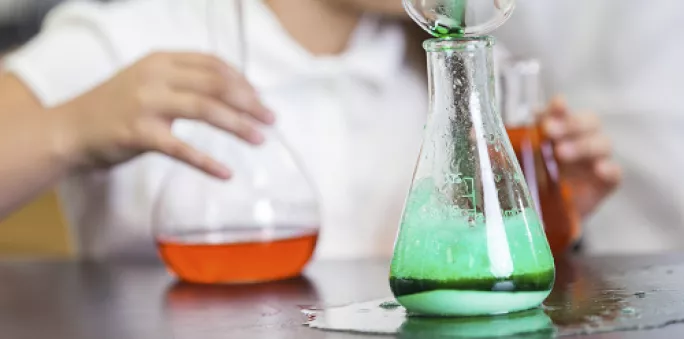Science is being ignored in primaries, half of teachers say
More than half of primary teachers believe science is being squeezed out, with a third revealing their school provides less than the recommended two hours a week, research has shown.
One in three teachers also lack confidence when it comes to teaching the sciences, a joint study by the CBI and Brunel University London finds.
In the survey of 260 teachers, 53 per cent of respondents voiced concerns that science had become less of a priority, while 36 per cent said their schools were not devoting enough curriculum time to the subject.
The findings echo concerns raised by the Wellcome Trust in September when the body warned that primary science was no longer being prioritised by schools despite being a core subject in the national curriculum.
The CBI argued that government’s decision in 2009 to abolish key stage 2 exams in science was the main factor behind the drop-off in the subject, and warned that the lack of teaching would lead to a skills shortage further down the line.
“Science education in primary schools is being squeezed out, with over half of teachers believing it has become less of a priority with too many schools struggling to teach the recommended two hours every week,” John Cridland, the body’s director general, said.
“How can we expect to inspire future generations of scientists and engineers if we don’t deliver high-quality and inspiring science lessons at primary school age?” he added. “If we are not careful, too many children will have lost interest in science before they hit their teens.”
The CBI also urged schools to avoid “pigeon-holing” boys and girls into certain subject and career paths at a young age.
“The idea that the education system is successfully inspiring the next generation of scientists and engineers is fantasy,” Mr Cridland added.
The decision to scrap science tests in Year 6 was broadly welcomed when it was announced six years ago, with many teachers hoping the reform would usher in a new era of classroom innovation and reduce teaching to the test.
But today’s figures suggest schools are now focusing on numeracy and literacy, the two areas still tested at KS2.
Russell Hobby, general secretary of the NAHT headteachers’ union, said learning science at a young age was essential to understanding the modern world.
“Yet primary schools are constrained by narrow accountability targets and the need for their teachers to be masters of all trades, teaching science with the same confidence they teach English, maths, history and sport,” he added. “We should, as the report recommends, offer maximum support to primary schools and make sure we judge them fairly on a broad and balanced curriculum.”
The Department for Education described the report as “nonsense”, adding that the new primary science curriculum “rivals the best in the world”.
“It is a crucial part of our plan to prepare young people for life in modern Britain, and we have made big strides in recent years,” a DfE spokesperson said. “A record number of pupils are now taking science at GCSE and we are seeing more young people taking the crucial Stem (science, technology, engineering and maths) subjects at A-level.”
Related stories:
England’s schools suffering from ‘science deserts’, minister warns - 7 May 2014
Engage and enthuse pupils in science - with fun! - 7 February 2015
How to build a solid foundation for primary science - 4 February 2015
Keep reading for just £1 per month
You've reached your limit of free articles this month. Subscribe for £1 per month for three months and get:
- Unlimited access to all Tes magazine content
- Exclusive subscriber-only stories
- Award-winning email newsletters




